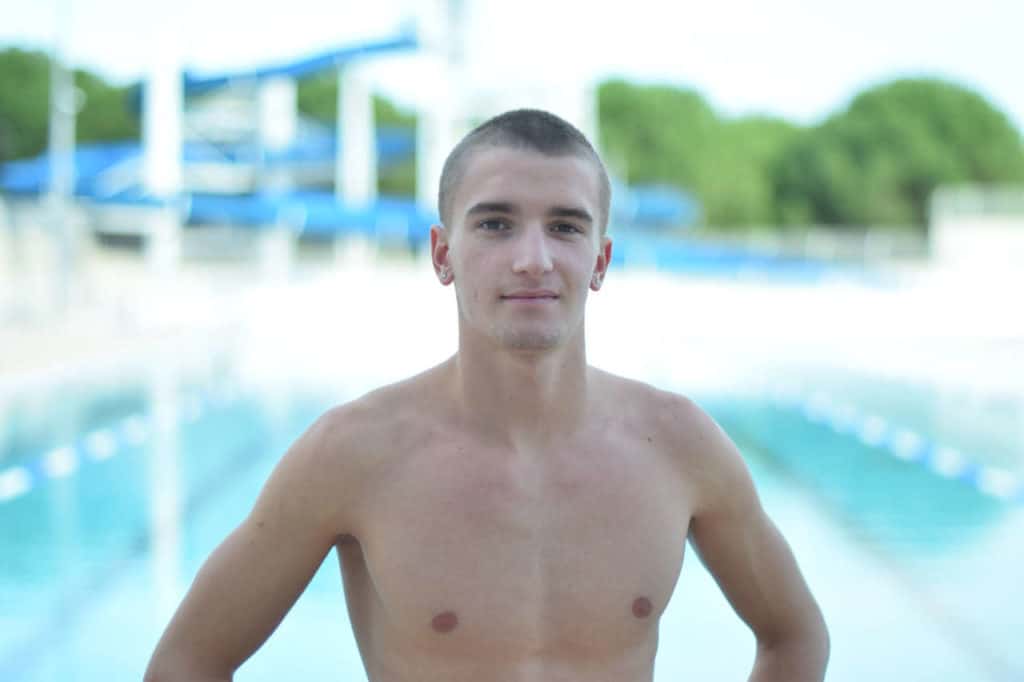[LUM#4] Lifeguard for fun
Combining fun activities with life-saving techniques is the principle behind rescue sports. Discover this little-known sport with Jérémy Ferrara, a student at Polytech and French junior champion in a rapidly growing discipline.

Within the large swimming family, they form a separate branch that thrives away from the spotlight. Jérémy Ferrara is one of them. His specialty: lifesaving. An activity that, before being a sport, is a very serious profession that saves dozens of lives every year. Lifesaving is inspired by real-life situations experienced daily by lifeguards. It is a demanding discipline combining swimming, apnea, running, navigation, and, of course, towing mannequins. "There are two types of events: flat water events, i.e., in a pool, and coastal events, on sand and in the sea, which are the most spectacular," explains the 20-year-old, whose petite physique contrasts with the typical swimmer's build. Last winter, in Castres, Jérémy Ferrara became French champion in the 100-meter obstacle course, an event that involves navigating a course strewn with floating barriers, forcing the lifeguard to dive to simulate the search for a person in distress...
Montpellier, France's capital of rescue sports
Although lifesaving as a sport originated on the Australian coast at the turn of the 20th century, it was not until the early 1990s that the first French competitions were held. Today, although the two Oceanic giants—Australia and New Zealand—still dominate the competition, France is establishing itself as a major nation in the discipline. At the last World Games—a competition featuring some 30 non-Olympic sports—France won 11 medals, including six gold. This is a historic achievement. The number of people practicing the sport has grown exponentially over the past decade. Jérémy Ferrara, a symbol of this new wave, has no regrets about his choice. An accomplished swimmer who has been in the pool since the age of three, he appreciates the variety of a discipline that contrasts with the monotony of traditional swimming: "In swimming, you more or less always do the same thing in training and surprises are rare in competition. In lifesaving, the best swimmer may well not win because he or she missed a technical move..."
Rescue robots
Recognized as a high-level sport in France since 2009, lifesaving has found its home in Montpellier. The capital of Languedoc is now home to the "Pôle France"and has been entrusted with organizing the 2014 World Championships. It's the perfect environment for the young lifeguard, who juggles training with a preparatory course for engineering studies at Polytech. "I benefit from flexible hours, with the option of completing my preparatory studies over three years instead of two," explains the young man, who would like to become a robotics engineer. And why not one day participate in the development of rescue robots which, like the Helper drone tested this summer in Biscarosse, are increasingly becoming indispensable aids in sea rescue operations?
Find UM podcasts now available on your favorite platform (Spotify, Deezer, Apple Podcasts, Amazon Music, etc.).